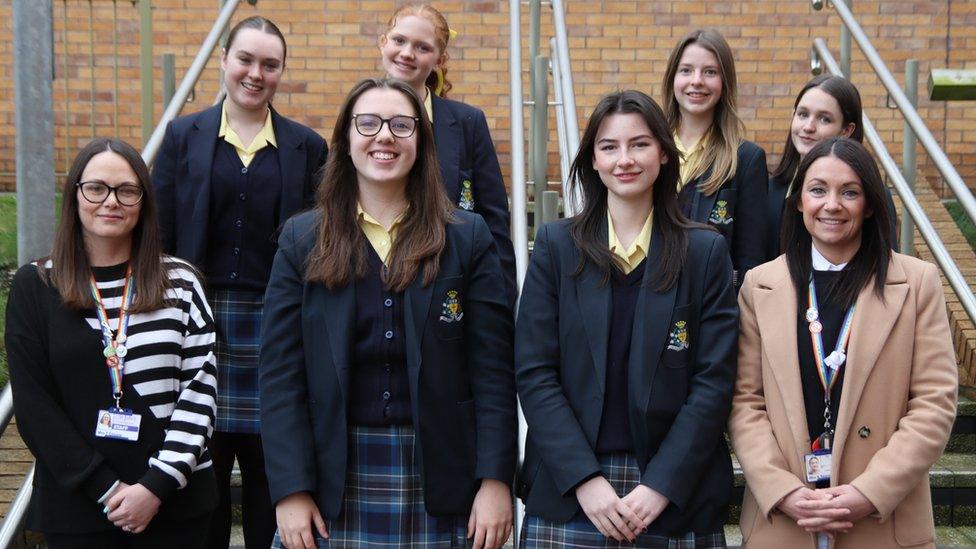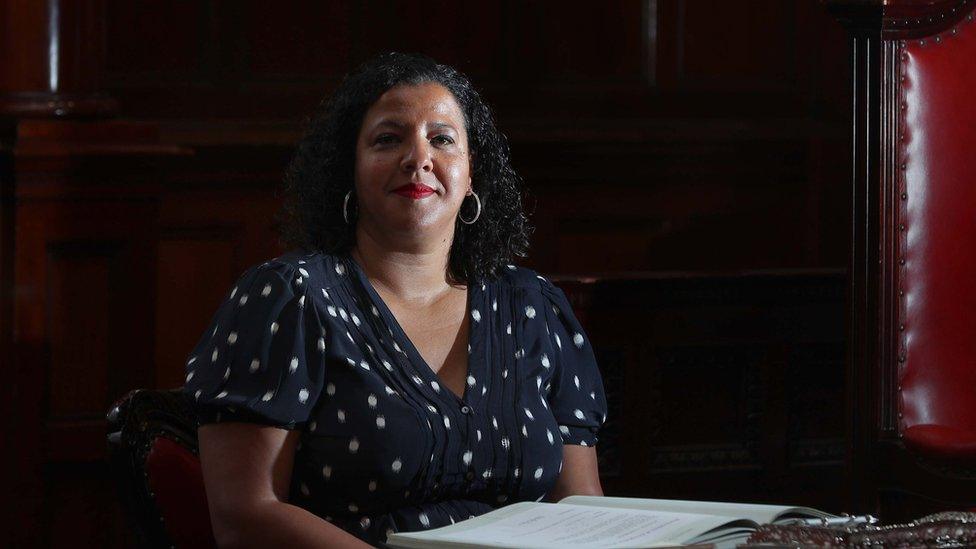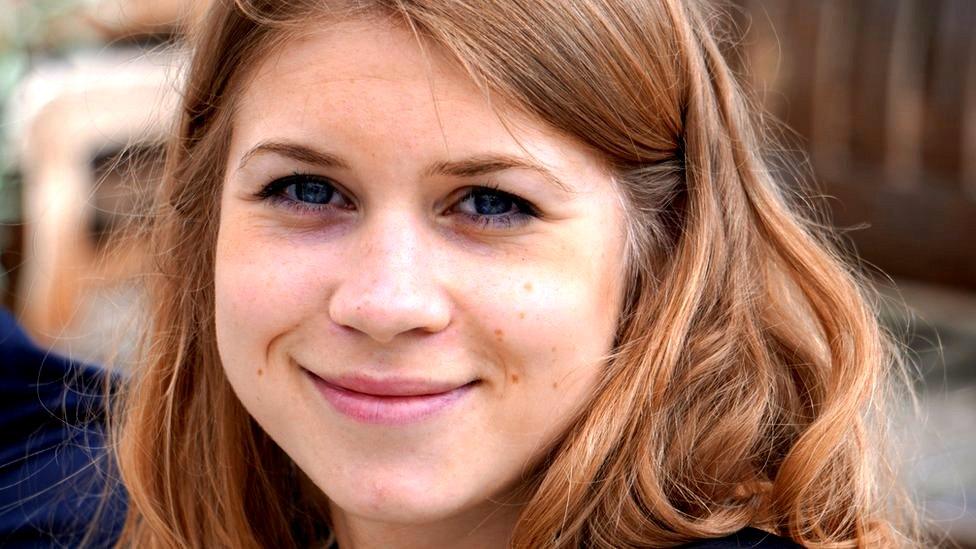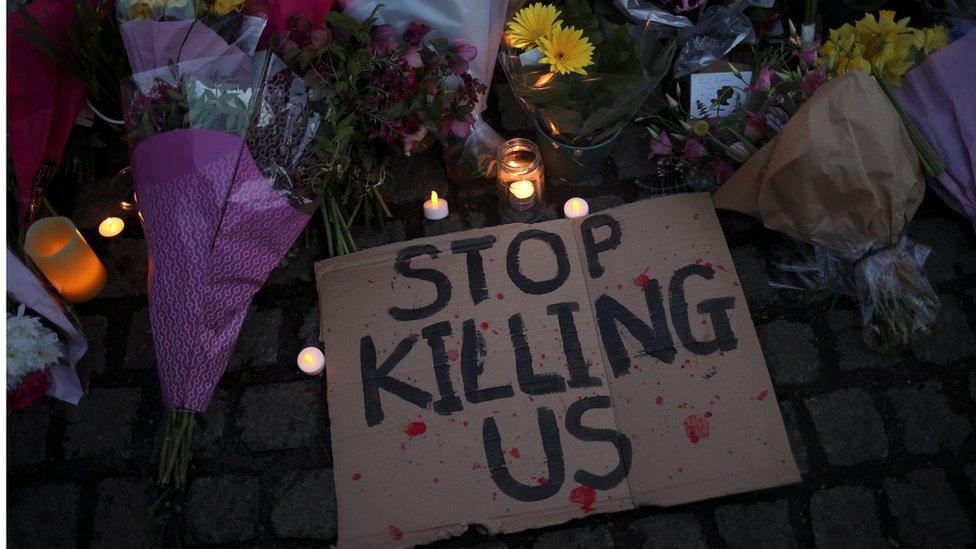Liverpool pupils help shape strategy to end street harassment
- Published

Pupils at St Julie's Catholic High School have helped to shape strategy
A group of teenagers have shared their experiences of street harassment to help shape a strategy to tackle violence against women and girls in Liverpool.
Year 11 pupils at St Julie's Catholic High School in Woolton told how they had been subjected to cat-calling and snide comments from a young age.
Mayor Joanne Anderson has launched a programme to end such "everyday" abuse.
She said she hoped early conversations could prevent harassment and attacks.
"The word misogyny is not used in this training resource," she told Politics North West.
"It doesn't start with attacks or harassment, it starts with more subtle things. Misogyny is a range of comments, it's cat-calling, whistling.
"By introducing ideas around boundaries and respect at primary school, it starts those conversations early and hopefully prevents some of those negative attitudes developing later on."
As part of gathering evidence for the strategy, pupils set out how they hoped the city could become a safer place for young women.
"If it's cat-calling or snide comments, it's dismissed from a young age," said Camille.
"[You're told] 'it's fine, don't worry about it, they're just boys' or 'it's because he likes you'.
"It should be taken more seriously."

Mayor Joanne Anderson said violence against women was an everyday occurrence
"If you're in big groups with your friends sitting on the bus you will still hear boys walking past making comments and it makes you feel vulnerable", classmate Libby said.
Assistant head teacher Kate Rooney said public transport was where her pupils felt least safe.
"They tell us they feel safe on site but when the gates open at the end of the day and they have to travel across the city home they tell us they don't feel safe," she said.
"Vulnerable is the word the students use.
"It's to do with the acceptance of banter and vocabulary that isn't challenged by their peers or by adults who are on public transport with them, and so there's this level of acceptance that it's OK to speak to young women and girls in this way."
Liverpool City Council said more than 30 primary schools had signed up to receive misogyny awareness training for staff as part of the strategy.
A new resource aimed at primary schools called Send me a Selfie aims to introduce Year 6 pupils to concepts like consent and highlight the dangers of sharing personal information online.
About 25 schools have already taken part in the training, the council said.
Merseyside's Police and Crime Commissioner Emily Spurrell said "so-called low level street harassment" was a "daily occurrence for young women".
"One of the challenges we have is the legislation and what actually counts as a crime so I am calling for public street harassment to be classed as a crime," she said.
Cheshire's Police and Crime Commissioner John Dwyer added that misogyny should be classed as a hate crime.
He said education was key and that starts in primary schools about "what is and isn't acceptable behaviour".

Why not follow BBC North West on Facebook, external, Twitter, external and Instagram, external? You can also send story ideas to northwest.newsonline@bbc.co.uk
- Published6 January 2023

- Published24 January 2023

- Published30 June 2022

- Published5 October 2021

- Published23 September 2020
